
The Metropolitan Police Service (MPS), formerly known as the Metropolitan Police, which is still its common name, serves as the territorial police force responsible for law enforcement and crime prevention within the ceremonial county of Greater London. In addition, it is responsible for specialised tasks throughout the United Kingdom, such as UK counter-terrorism measures, and the protection of certain individuals, including the monarch, royal family, governmental officials, and other designated figures. Commonly referred to as the Met, it is also referred to as Scotland Yard or the Yard, after the location of its original headquarters in Great Scotland Yard, Whitehall in the 19th century. Its present headquarters are near there at New Scotland Yard on the Victoria Embankment.
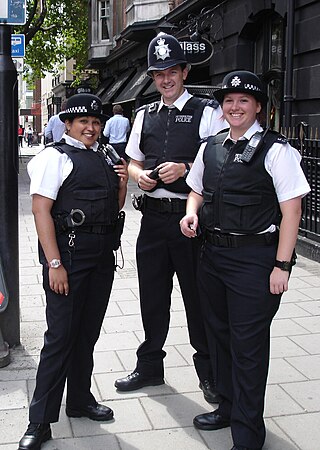
Law enforcement in the United Kingdom is organised separately in each of the legal systems of the United Kingdom: England and Wales, Scotland, and Northern Ireland. Most law enforcement duties are carried out by those who hold the office of police constable of a territorial police force.
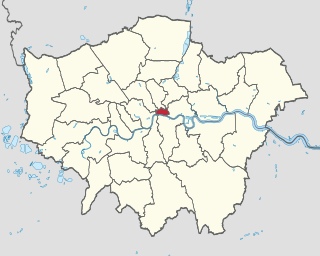
The City of London Police is the territorial police force responsible for law enforcement within the City of London, England, including the Middle and Inner Temples.
Special police usually describes a police force or unit within a police force whose duties and responsibilities are significantly different from other forces in the same country or from other police in the same force, although there is no consistent international definition. A special constable, in most cases, is not a member of a special police force (SPF); in countries in the Commonwealth of Nations and often elsewhere, a special constable is a voluntary or part-time member of a national or local police force or a person involved in law enforcement who is not a police officer but has some of the powers of a police officer.
Police ranks are a system of hierarchical relationships in police organisations. The rank system defines authority and responsibility in a police organisation, and affects the culture within the police force. Usually, uniforms denote the bearer's rank by particular insignia affixed to the uniforms.
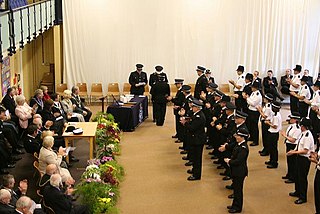
The Special Constabulary is the part-time volunteer section of statutory police forces in the United Kingdom and some Crown dependencies. Its officers are known as special constables.

Avon and Somerset Police is the territorial police force responsible for law enforcement in the five unitary authority areas of Bristol, Bath and North East Somerset, North Somerset, Somerset, and South Gloucestershire, all in South West England.
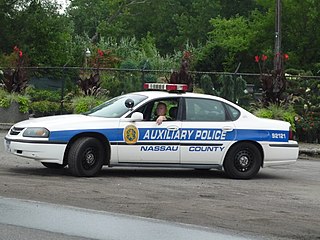
Auxiliary police, also called volunteer police, reserve police, assistant police, civil guards, or special police, are usually the part-time reserves of a regular police force. They may be unpaid volunteers or paid members of the police service with which they are affiliated.

The Hampshire and Isle of Wight Constabulary is the territorial police force responsible for policing the counties of Hampshire and the Isle of Wight in South East England.
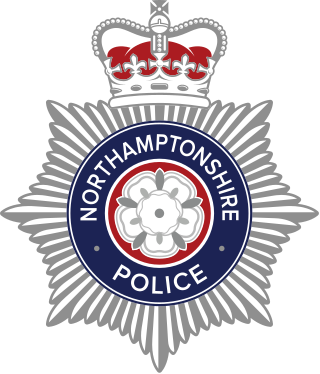
Northamptonshire Police is the territorial police force responsible for policing the county of Northamptonshire in the East Midlands of England, in the United Kingdom.
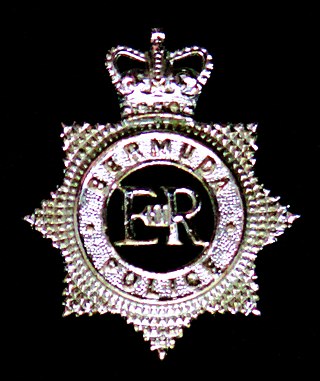
The Bermuda Police Service is the law enforcement agency of the British Overseas Territory and former Imperial fortress of Bermuda. It is responsible for policing the entire archipelago, including incorporated municipalities, and the surrounding waters. It is part of, and entirely funded by, the Government of Bermuda. Like the Royal Bermuda Regiment, it is under the nominal control of the territory's Governor and Commander in Chief, although, for day-to-day purposes, control is delegated to a minister of the local government. It was created in 1879, as Bermuda's first professional police service. In organisation, operation, and dress, it was created and has developed in line with the patterns established by British Isles police services, such as the City of Glasgow Police, and the Metropolitan Police Service.

Law enforcement in Canada is the responsibility of police services, special constabularies, and civil law enforcement agencies, which are operated by every level of government, some private and Crown corporations, and First Nations. In contrast to the United States or Mexico, and with the exception of the Unité permanente anticorruption in Quebec and the Organized Crime Agency of British Columbia, there are no organizations dedicated exclusively to the investigation of criminal activity in Canada. Criminal investigations are instead conducted by police services, which maintain specialized criminal investigation units in addition to their mandate for emergency response and general community safety.
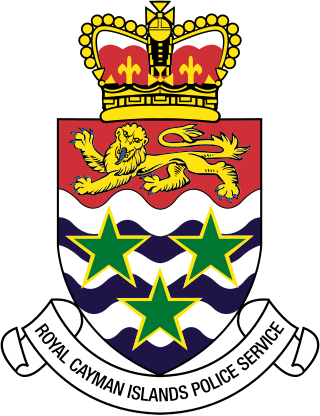
The Royal Cayman Islands Police Service (RCIPS) is the standing police force of the British Overseas Territory of the Cayman Islands. The police force was formed in 1907 and currently (2009) stands at 343 enlisted officers, tasked with tackling Crime in the Cayman Islands.
Auxiliary constables or reserve constables are unpaid citizens in Canada who volunteer their time and skills to a police force. They are uniformed, unarmed members who perform a similar role to their UK counterparts in the Special Constabulary. Their main function is to supplement the police force with additional manpower, with duties varying by appointment, geographical location and the needs of the specific detachment/department.

The Royal Montserrat Police Service is the police service of the British Overseas Territory island of Montserrat in the Caribbean.
Royal Malaysia Police (RMP) unit Royal Malaysia Police Volunteer Reserve (RMPVR) (Malay: Sukarelawan Simpanan Polis) is a team of special police as well as the supporting element to the full-time Royal Malaysian Police force where normal citizens could volunteer to help to maintain peace and security of their respective formation. The RMPVR officers is mainly composed of professionals such as the architects, engineers, lawyers, teachers, doctors, businessmen and senior government officers. Under the National Blue Ocean Strategies, in 2017, government drive to recruit RMPVR officers is targeted to have 50,000 people from all walks of like. Currently, there are 6,975 PVR officers in Malaysia as of 31 December, 2022 (Source: https://apakhabartv.com/2023/03/25/happy-police-day-volunteers-in-the-force/).
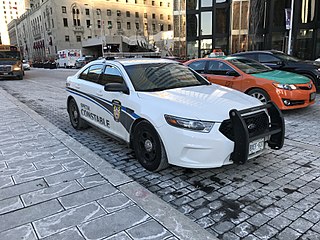
A special constable or special police constable can refer to an auxiliary or part-time law enforcement officer or a person who is granted certain (special) police powers.
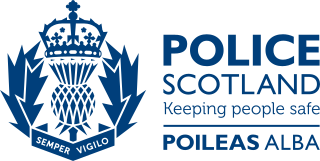
Police Scotland, officially the Police Service of Scotland, is the national police force of Scotland. It was formed in 2013, through the merging of eight regional police forces in Scotland, as well as the specialist services of the Scottish Police Services Authority, including the Scottish Crime and Drug Enforcement Agency. Although not formally absorbing it, the merger also resulted in the winding down of the Association of Chief Police Officers in Scotland.

The Royal Turks and Caicos Islands Police Force is the national police force of the Turks and Caicos Islands, a British Overseas Territory in the Lucayan Archipelago of the Atlantic Ocean and northern West Indies. It is one of the oldest police forces in the world.






























